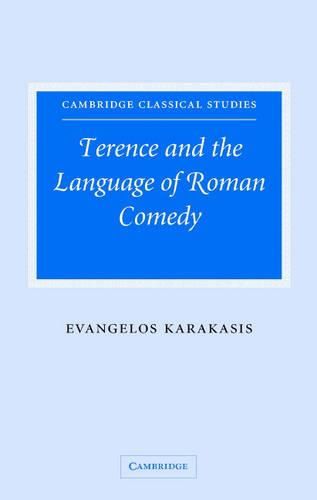Readings Newsletter
Become a Readings Member to make your shopping experience even easier.
Sign in or sign up for free!
You’re not far away from qualifying for FREE standard shipping within Australia
You’ve qualified for FREE standard shipping within Australia
The cart is loading…






This book offers a comprehensive examination of the language of Roman comedy in general and that of Terence in particular. The study explores Terence’s use of language to differentiate his characters and his language in relation to the language of the comic fragments of the palliata, the togata and the atellana. Linguistic categories in the Terentian corpus explored include colloquialisms, archaisms, hellenisms and idiolectal features. Terence is shown to give his old men an old-fashioned and verbose tone, while low characters are represented as using colloquial diction. An examination of Eunuchus’ language shows it to be closer to the Plautine linguistic tradition. The book also provides a thorough linguistic/stylistic commentary on all the fragments of the palliata, the togata and the atellana. It shows that Terence, except in the case of his Eunuchus, consciously distances himself from the linguistic/stylistic tradition of Plautus followed by all other comic poets.
$9.00 standard shipping within Australia
FREE standard shipping within Australia for orders over $100.00
Express & International shipping calculated at checkout
This book offers a comprehensive examination of the language of Roman comedy in general and that of Terence in particular. The study explores Terence’s use of language to differentiate his characters and his language in relation to the language of the comic fragments of the palliata, the togata and the atellana. Linguistic categories in the Terentian corpus explored include colloquialisms, archaisms, hellenisms and idiolectal features. Terence is shown to give his old men an old-fashioned and verbose tone, while low characters are represented as using colloquial diction. An examination of Eunuchus’ language shows it to be closer to the Plautine linguistic tradition. The book also provides a thorough linguistic/stylistic commentary on all the fragments of the palliata, the togata and the atellana. It shows that Terence, except in the case of his Eunuchus, consciously distances himself from the linguistic/stylistic tradition of Plautus followed by all other comic poets.